
Lublin: The Heart of Eastern Poland's Heritage
Lublin, a historic gem in eastern Poland, offers a unique blend of cultural diversity, rich history, and modern vibrancy. Known for its charming Old Town, Lublin is often referred to as the 'little Krakow'. The city is a tapestry of cobblestone streets, medieval architecture, and picturesque squares that transport you back in time. The city's history is deeply intertwined with Jewish culture, which is evident in the preserved synagogues and the annual Festival of Jewish Culture. The Lublin Castle, with its Gothic Chapel of the Holy Trinity, is a must-visit, offering panoramic views of the city and a glimpse into Poland's royal past. Don't miss the Majdanek Concentration Camp Museum, a poignant reminder of World War II history. Lublin is also a cultural hub with numerous theaters, galleries, and events. The Carnaval Sztukmistrzów, an international festival of circus and street art, brings the city to life every summer. For food enthusiasts, Lublin's culinary scene is a delightful mix of traditional Polish dishes and modern cuisine. Be sure to try cebularz, a local delicacy made with onions and poppy seeds. Whether you're strolling through the Botanical Garden, exploring the underground passages of the Old Town, or enjoying a concert at the Philharmonic Hall, Lublin offers a captivating experience for every traveler.
Local tips in Lublin
- Visit the Lublin Tourist Information Centre for maps and brochures.
- Wear comfortable shoes as the Old Town's cobblestone streets can be uneven.
- Try local dishes like cebularz and pierogi at traditional Polish restaurants.
- Attend the Carnaval Sztukmistrzów if visiting in summer for a unique experience.
- Use public transport or rent a bike to explore the city efficiently.
Neighbourhoods in Lublin
Lublin: The Heart of Eastern Poland's Heritage
Lublin, a historic gem in eastern Poland, offers a unique blend of cultural diversity, rich history, and modern vibrancy. Known for its charming Old Town, Lublin is often referred to as the 'little Krakow'. The city is a tapestry of cobblestone streets, medieval architecture, and picturesque squares that transport you back in time. The city's history is deeply intertwined with Jewish culture, which is evident in the preserved synagogues and the annual Festival of Jewish Culture. The Lublin Castle, with its Gothic Chapel of the Holy Trinity, is a must-visit, offering panoramic views of the city and a glimpse into Poland's royal past. Don't miss the Majdanek Concentration Camp Museum, a poignant reminder of World War II history. Lublin is also a cultural hub with numerous theaters, galleries, and events. The Carnaval Sztukmistrzów, an international festival of circus and street art, brings the city to life every summer. For food enthusiasts, Lublin's culinary scene is a delightful mix of traditional Polish dishes and modern cuisine. Be sure to try cebularz, a local delicacy made with onions and poppy seeds. Whether you're strolling through the Botanical Garden, exploring the underground passages of the Old Town, or enjoying a concert at the Philharmonic Hall, Lublin offers a captivating experience for every traveler.
When is the best time to go to Lublin?
Iconic landmarks you can’t miss
Lithuanian Square
Discover the vibrant history and culture at Lithuanian Square, a must-visit monument and tourist attraction in Lublin, Poland.
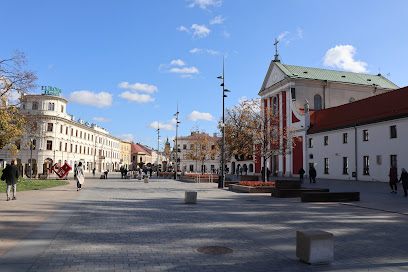
Multimedia Fountain
Discover the captivating Multimedia Fountain in Lublin, where water, light, and music create a mesmerizing experience for all visitors.
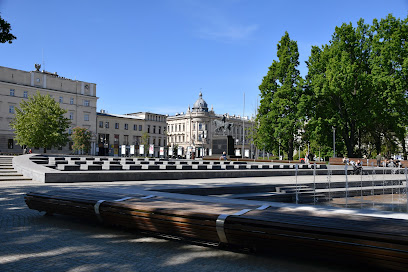
Saxon Garden
Discover the enchanting Saxon Garden in Lublin, a serene state park perfect for nature lovers and cultural enthusiasts alike.
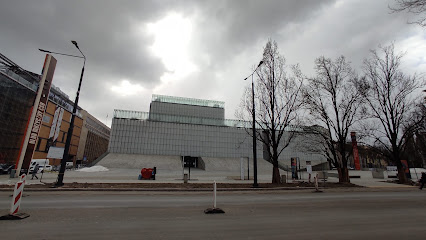
Cracow Gate
Discover the rich history and stunning architecture of Cracow Gate in Lublin, a must-see landmark that captures the essence of the city.
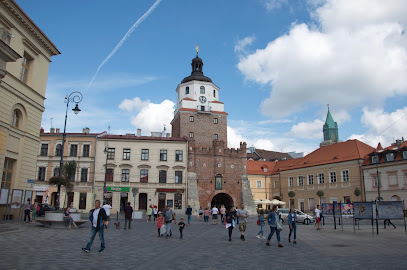
plac Po Farze
Explore the vibrant heart of Lublin at Plac Po Farze, where history, culture, and community come together in a stunning urban square.
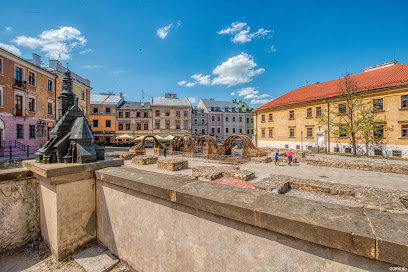
Lubelska Trasa Podziemna
Discover the mysteries of Lublin at the Lubelska Trasa Podziemna, a captivating underground tourist attraction showcasing the city's rich medieval history.
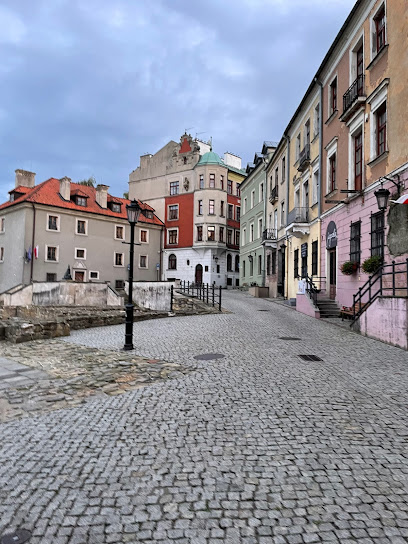
The Old Town Market Square
Discover the captivating charm of The Old Town Market Square in Lublin, a historic landmark rich in culture, architecture, and vibrant local life.
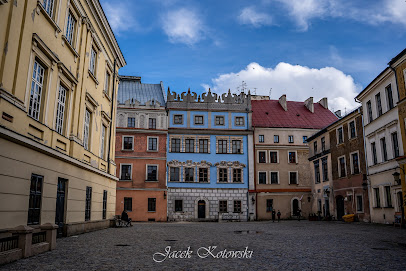
Wieża Trynitarska - Muzeum Archidiecezji Lubelskiej
Immerse yourself in the history and beauty of Lublin at Wieża Trynitarska, where stunning views and rich cultural heritage await.
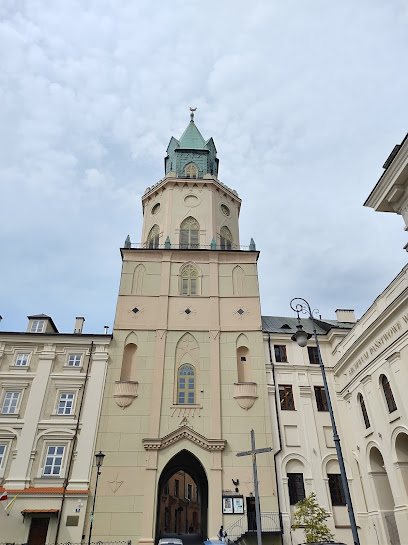
The Donjon
Discover the historical grandeur of The Donjon in Lublin, Poland, where medieval architecture meets captivating stories from the past.
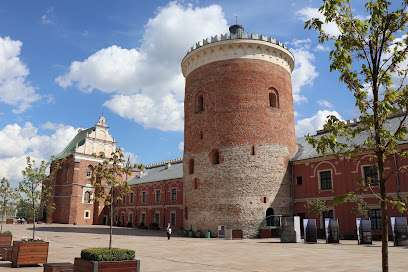
Monument to the Union of Lublin
Discover the Monument to the Union of Lublin, a historical landmark celebrating the unity of Poland and Lithuania, perfect for history lovers exploring Lublin.
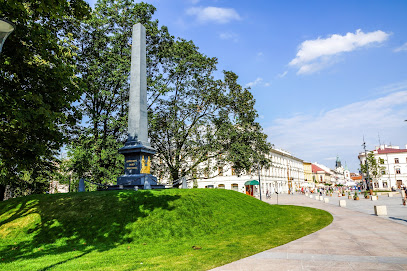
Portal
Discover the history and culture of Lublin at Portal, a captivating tourist attraction that embodies the spirit of Poland.
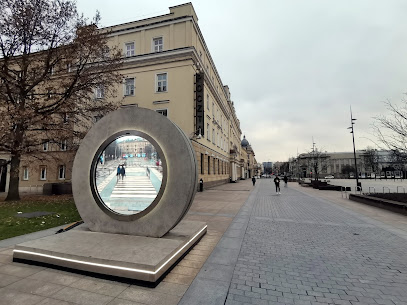
Gothic Tower
Explore the Gothic Tower in Lublin, a stunning historical landmark offering breathtaking views and a glimpse into the city's medieval past.
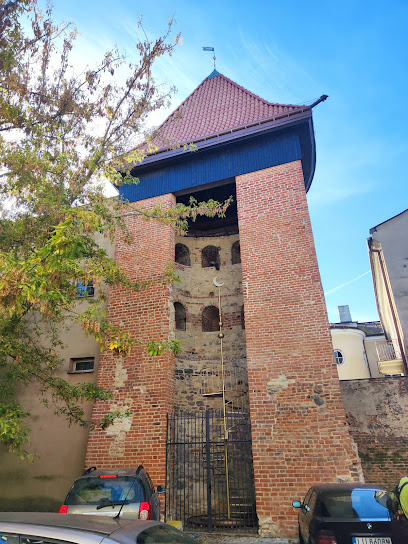
plac Katedralny
Explore the historical charm and vibrant atmosphere of Plac Katedralny in Lublin, a must-see destination for every traveler.
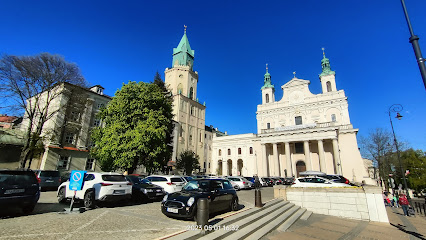
Sobieski Palace
Explore the historical charm of Sobieski Palace in Lublin, a captivating landmark showcasing Poland's royal heritage and architectural beauty.
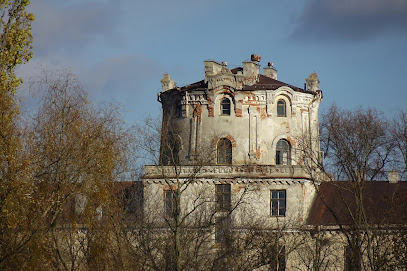
Remains of the Castle Tower
Explore the historical Remains of the Castle Tower in Lublin, a captivating landmark offering stunning views and rich cultural heritage.
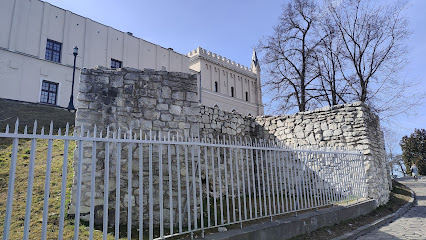
Unmissable attractions to see
Lublin Castle
Explore the rich history and stunning architecture of Lublin Castle, a must-see museum in the heart of Poland's cultural landscape.
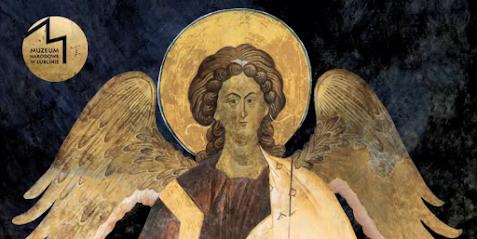
Multimedia Fountain
Experience the magic of Lublin's Multimedia Fountain, where water, light, and music create a captivating spectacle that enchants all who visit.
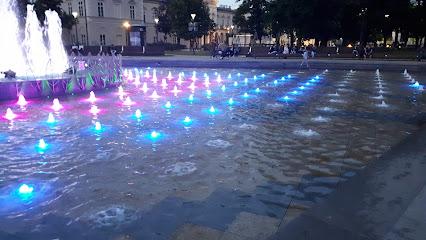
Centre for the Meeting of Cultures in Lublin
Discover the vibrant cultural scene at the Centre for the Meeting of Cultures in Lublin, where art, music, and cinema unite in a historic city backdrop.
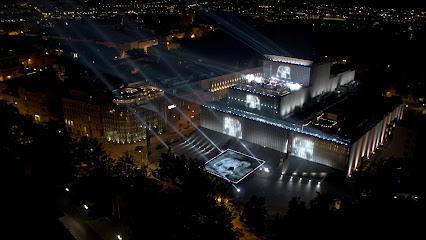
Saxon Garden
Discover the tranquility of Saxon Garden, an urban park in Lublin, where nature meets history in a serene escape.
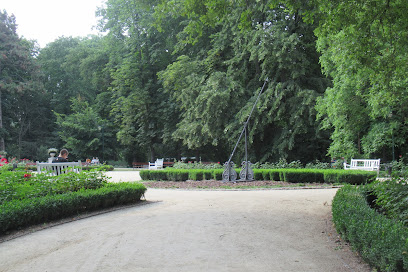
Cracow Gate
Explore the rich history and cultural significance of Cracow Gate, a must-visit landmark in Lublin, Poland.
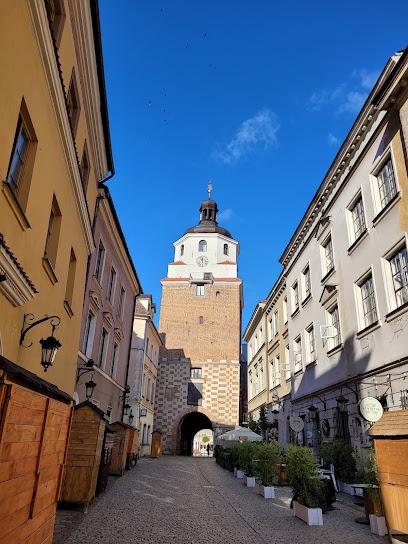
Lublin Village Open Air Museum
Explore the Lublin Village Open Air Museum, where Poland's rich cultural heritage and traditional crafts come to life in a captivating outdoor setting.
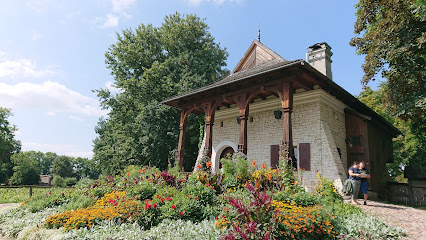
Państwowe Muzeum na Majdanku
Explore the profound history of the Holocaust at Państwowe Muzeum na Majdanku in Lublin, a national museum dedicated to remembrance and education.
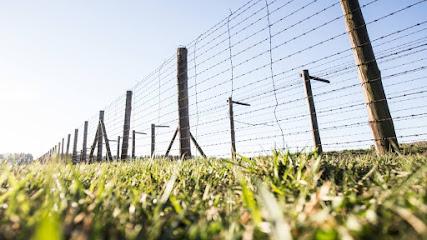
Park Ludowy
Explore the lush landscapes and serene pathways of Park Ludowy, a picturesque park in Lublin perfect for relaxation and outdoor activities.
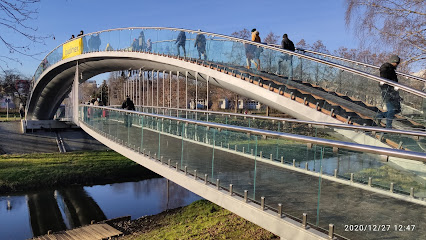
Muzeum Czartoryskich w Puławach
Explore the rich history and artistic treasures at Muzeum Czartoryskich, a cultural gem in Puławy, Poland.
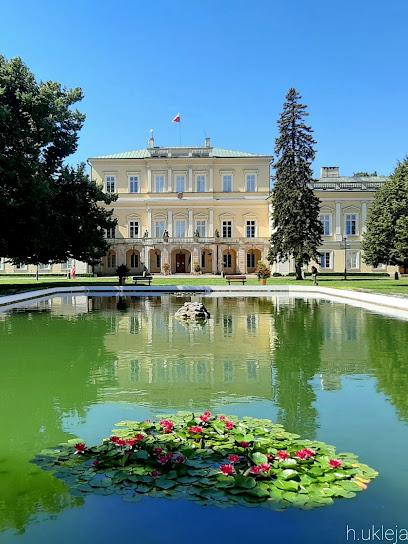
Plac Po Farze
Explore the enchanting Plac Po Farze, a historic square in Lublin, Poland, where culture, history, and vibrant local life come together.
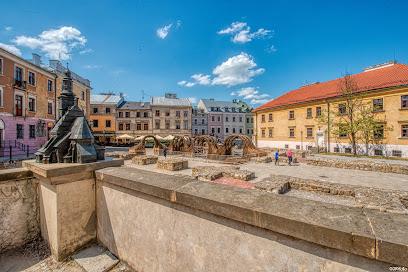
Lubelska Trasa Podziemna
Uncover the rich history of Lublin through the enchanting Lubelska Trasa Podziemna, a captivating underground adventure filled with tales and artifacts.
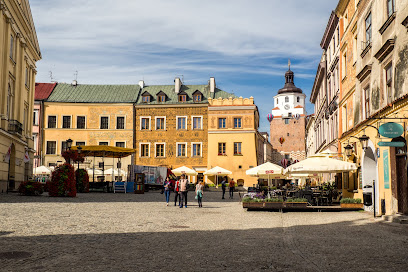
Park Zawilcowa
Explore the serene landscapes and vibrant natural beauty of Park Zawilcowa, a stunning state park in Lublin, perfect for relaxation and outdoor activities.
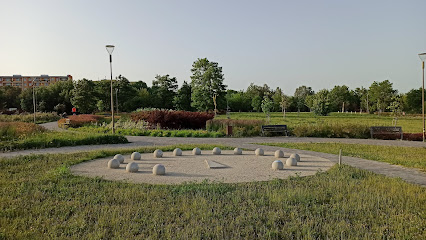
Wieża Trynitarska - Muzeum Archidiecezji Lubelskiej
Explore Wieża Trynitarska in Lublin: A historical tower with breathtaking views and rich cultural heritage, perfect for any traveler.
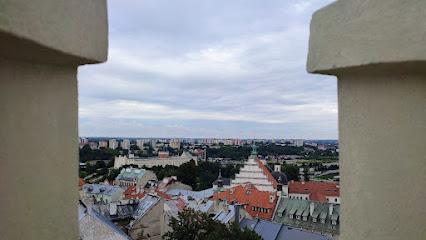
Lublin Castle Fields
Explore the lush landscapes and historical charm of Lublin Castle Fields, a picturesque park adjacent to the iconic Lublin Castle.
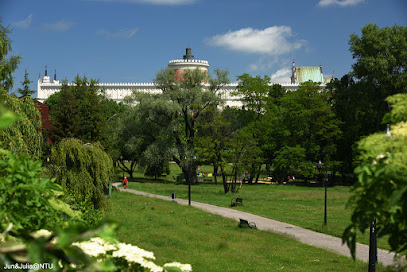
The Donjon
Discover the enchanting history and stunning architecture of The Donjon, a medieval castle in Lublin, Poland, rich in culture and breathtaking views.
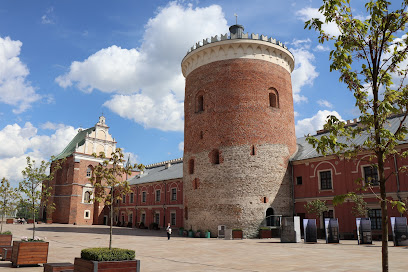
Essential places to dine
Św. Michał - pub regionalny
Discover the charm of Lublin at Św. Michał – your destination for delicious Polish cuisine and exceptional craft beers.
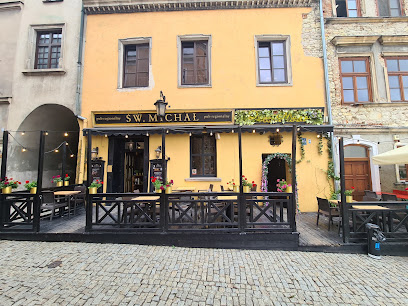
Stół i Wół
Discover Stół i Wół in Lublin - where Polish cuisine meets modern dining in an inviting atmosphere.
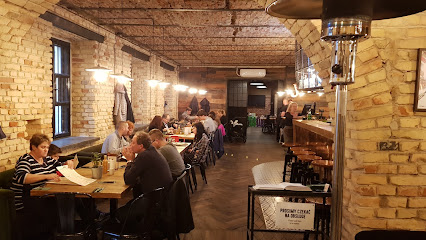
Red Rock City
Discover Red Rock City in Lublin - where American flavors meet vibrant atmosphere! Enjoy delicious hamburgers and more in this popular dining spot.
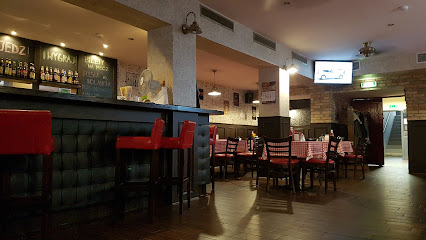
Pyzata Chata
Experience the heart of Poland at Pyzata Chata, where traditional dishes meet warm hospitality in the charming city of Lublin.
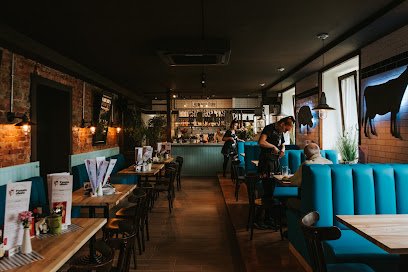
Mandragora żydowska restauracja
Savor authentic Jewish cuisine at Mandragora Restaurant in Lublin—where tradition meets taste in a charming atmosphere.
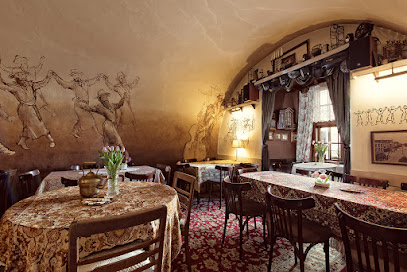
Queen Mama
Experience authentic Italian cuisine at Queen Mama in Lublin - where every dish tells a story of tradition and flavor.
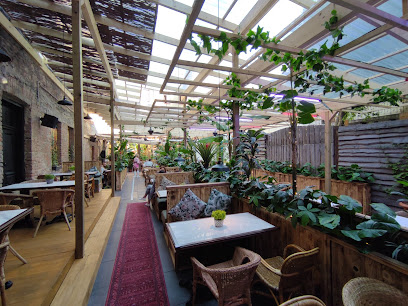
Sielsko Anielsko
Discover authentic Polish cuisine at Sielsko Anielsko in Lublin - where tradition meets flavor in a charming setting.
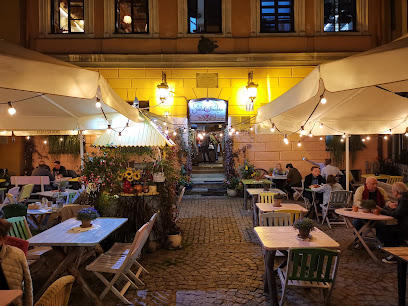
Perłowa Pijalnia Piwa
Discover Perłowa Pijalnia Piwa: A vibrant restaurant and beer garden in Lublin serving authentic Polish cuisine with lively entertainment.
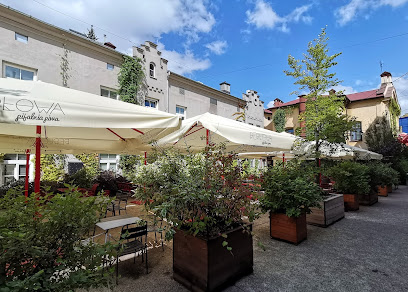
Chata Swojsko Strawa
Experience authentic Polish cuisine at Chata Swojsko Strawa in Lublin - where tradition meets flavor in every dish.
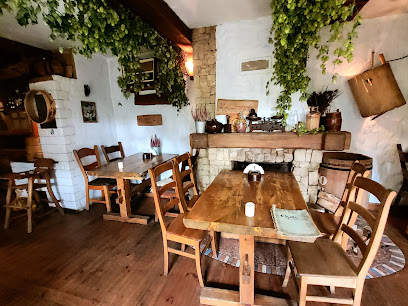
Halka - restauracja europejska
Experience authentic Italian cuisine at Halka in Lublin - where every meal is crafted with passion and fresh ingredients.
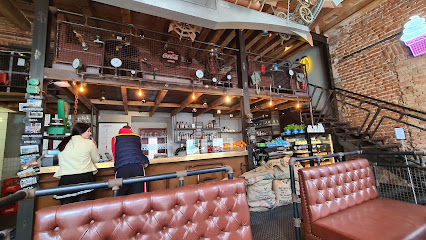
Dirty Joe Lublin
Discover Dirty Joe in Lublin: A vibrant brewpub serving delicious cheesesteaks and Southern cuisine in a lively atmosphere.
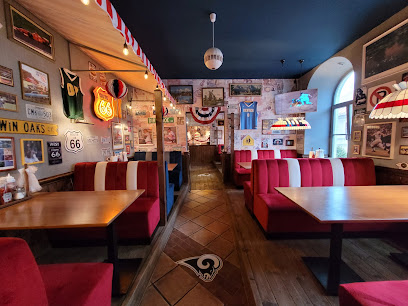
Pelier Bistro
Experience the vibrant culinary scene at Pelier Bistro in Lublin—where modern flavors meet traditional Polish cuisine.
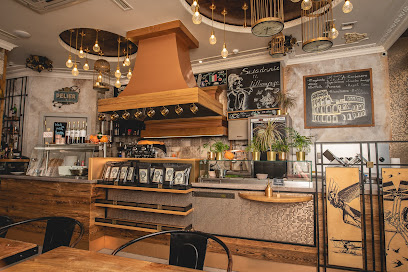
Restauracja Zielony Talerzyk Lublin
Discover authentic Polish cuisine at Zielony Talerzyk in Lublin – perfect for breakfast lovers and those seeking gluten-free delights.
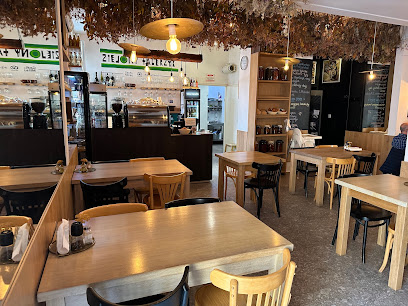
Restauracja Magia
Savor the best of European cuisine at Restauracja Magia in Lublin - where tradition meets modern culinary artistry.
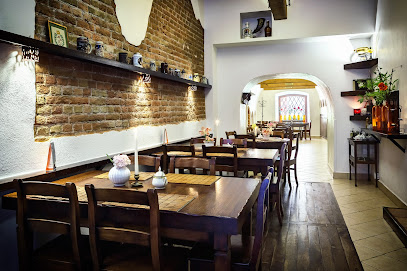
Thai Story
Experience authentic Thai flavors at Thai Story in Lublin – where every dish tells a story!
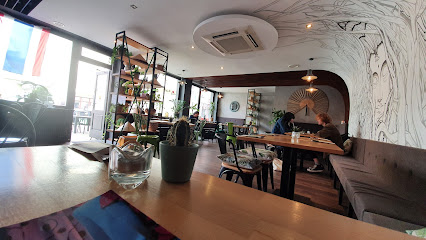
Markets, malls and hidden boutiques
Felicity Lublin
Explore Felicity Lublin: A vibrant shopping mall offering international brands, delightful dining, and local culture in the heart of Lublin.
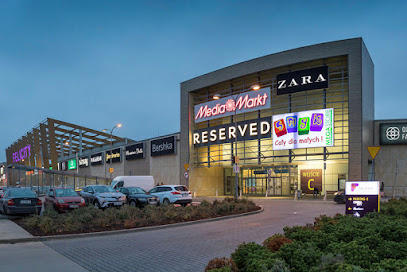
IKEA
Explore IKEA Lublin for an immersive shopping experience filled with stylish furniture, innovative designs, and delightful Swedish cuisine.
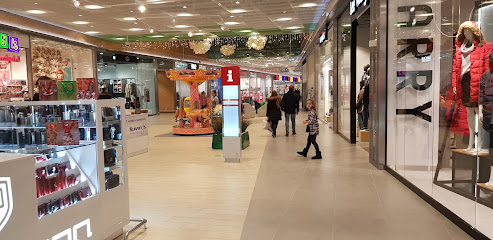
Galeria Olimp
Discover Galeria Olimp, Lublin's premier shopping mall, offering a blend of boutiques, dining, and entertainment in a vibrant atmosphere.
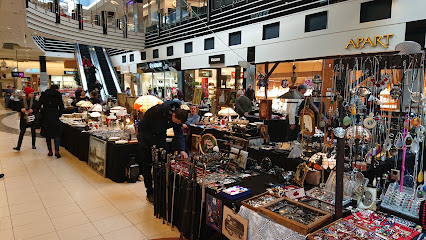
Lublin Plaza Shopping Center
Experience the ultimate shopping adventure at Lublin Plaza Shopping Center, offering diverse stores, delightful dining, and vibrant entertainment in Lublin, Poland.
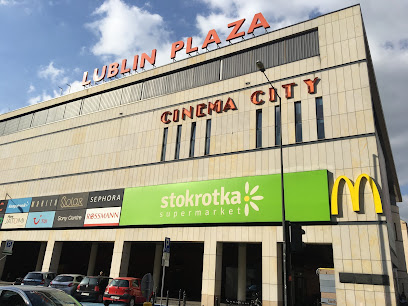
VIVO! Lublin
Experience the ultimate shopping destination at VIVO! Lublin, featuring a diverse selection of stores, dining, and entertainment for all ages.
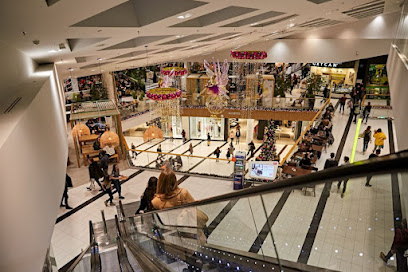
SKENDE Shopping
Experience the ultimate shopping adventure at SKENDE Shopping in Lublin, where fashion, food, and fun come together in one vibrant location.
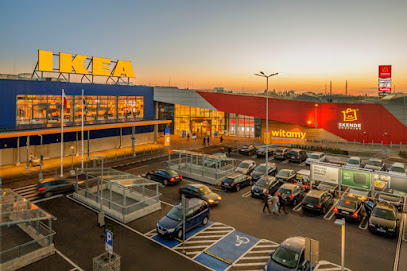
Galeria Orkana
Explore Galeria Orkana in Lublin: A vibrant shopping mall offering diverse stores, delicious dining, and exciting entertainment options for all visitors.
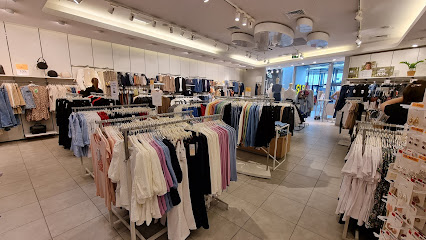
Tous Jewelry
Explore the exquisite collection of jewelry and fashion accessories at Tous Jewelry in Lublin, where elegance meets craftsmanship.
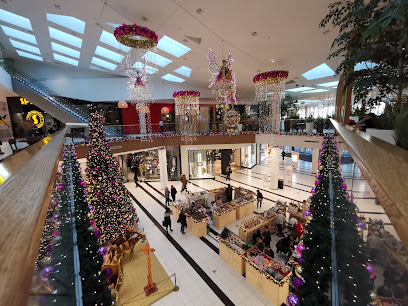
Outlet Lublin
Experience the ultimate shopping adventure at Outlet Lublin – where style meets savings in a vibrant atmosphere.
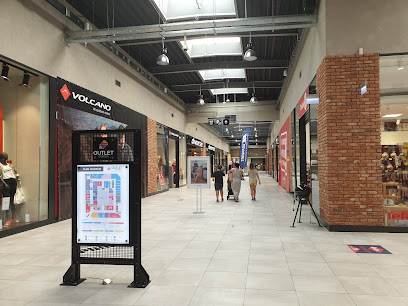
Diamentowa Park
Experience the vibrant shopping scene at Diamentowa Park, a premier destination in Lublin, offering diverse shops, dining, and entertainment options for all.
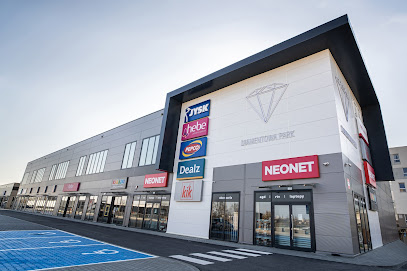
ZARA
Discover contemporary fashion at ZARA in Lublin, where style meets affordability for the modern shopper.
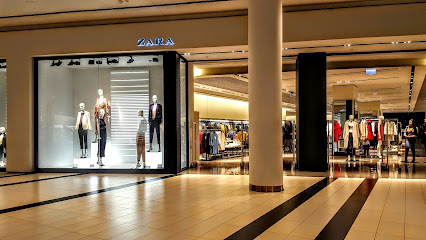
Reserved
Explore the latest fashion trends for the whole family at Reserved, a premier clothing store in Lublin, Poland.
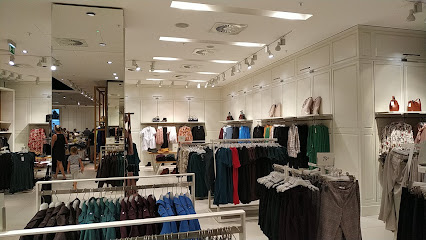
Empik
Discover Empik in Lublin: Your ultimate gift shop, bookstore, and stationery haven, perfect for finding unique souvenirs and literary gems.
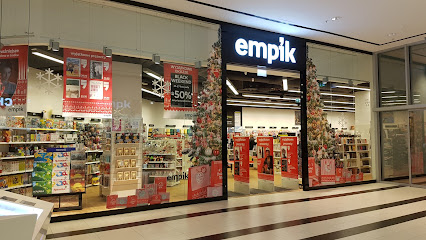
Fashion Freak Lublin
Discover unique styles and the latest trends at Fashion Freak Lublin, a must-visit clothing store for every fashion lover in Poland.

Polska Marka - sklep z pamiątkami Lublin - sklep patriotyczny - Magnets - Souvenirs
Explore Polska Marka in Lublin for unique Polish souvenirs, from pottery to sports memorabilia, capturing the spirit of Poland in every item.
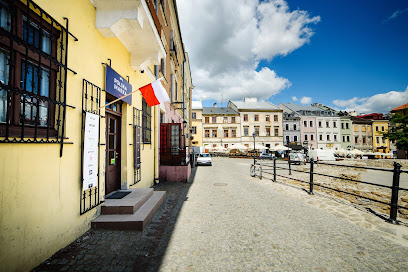
Essential bars & hidden hideouts
Św. Michał - pub regionalny
Discover the essence of Polish brewing at Św. Michał, a charming brewpub in Lublin offering craft beers and traditional dishes in a welcoming atmosphere.
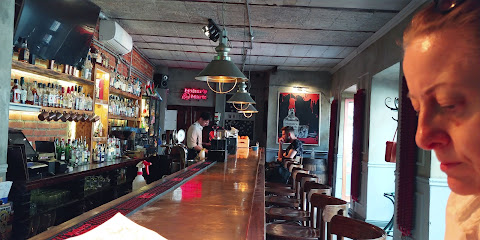
Ostro Klubokawiarnia
Discover the vibrant flavors of Ostro Klubokawiarnia, a lively lounge in Lublin, serving American and Polish cuisine with a great selection of drinks.
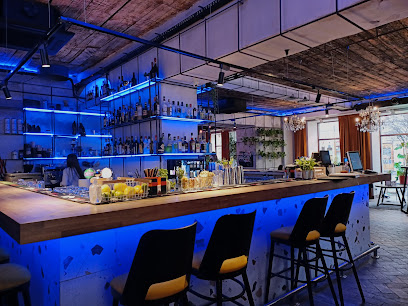
Perłowa Pijalnia Piwa
Experience the vibrant atmosphere and exceptional craft beers at Perłowa Pijalnia Piwa, a lively bar and dance hall in Lublin.
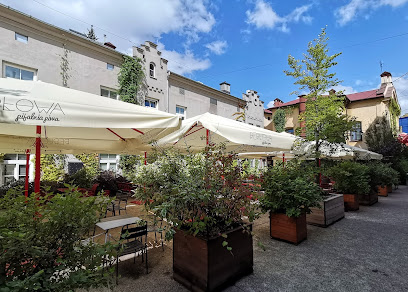
Trybunalska Lublin City Pub
Discover the vibrant culinary scene at Trybunalska City Pub in Lublin, where traditional Polish dishes meet contemporary flavors in a cozy atmosphere.
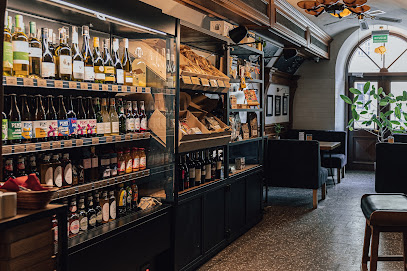
Pub u Szewca
Experience the warm hospitality and delicious flavors at Pub u Szewca, a beloved pub and restaurant in Lublin, perfect for every occasion.
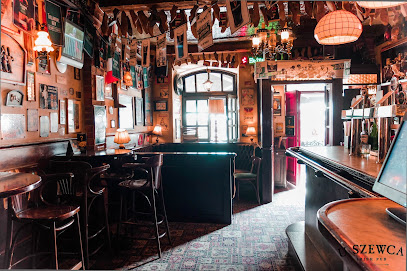
Ministerstwo Śledzia i Wódki
Experience the vibrant flavors of Poland at Ministerstwo Śledzia i Wódki, a delightful gastropub in Lublin famous for herring and vodka.
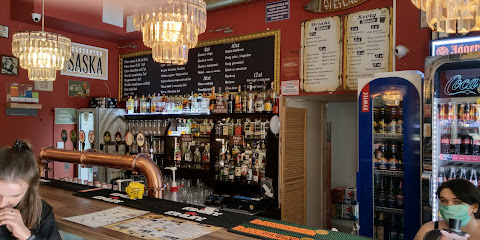
Czarna Owca Gastro Pub
Discover the flavors of Lublin at Czarna Owca Gastro Pub, where gourmet cuisine meets a vibrant atmosphere in the heart of the city.
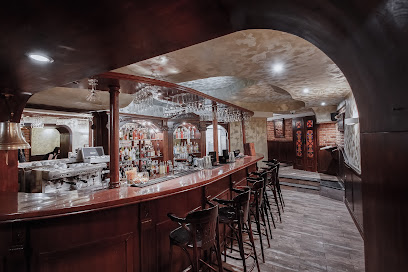
U Fotografa - Craft Beer Pub
Discover the best craft beers and diner-style cuisine at U Fotografa, the heart of Lublin's vibrant pub scene!
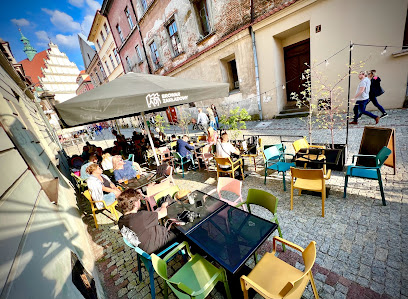
Pijalnia Wódki i Piwa
Discover the charm of Pijalnia Wódki i Piwa, a lively bar in Lublin known for its extensive selection of Polish spirits and vibrant atmosphere.
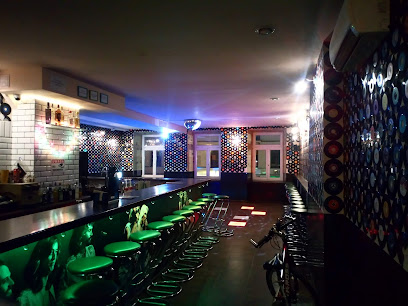
Shotbar U-Boot Lublin!
Unwind at Shotbar U-Boot in Lublin – a lively lounge and karaoke bar that promises unforgettable nights filled with music and fun.
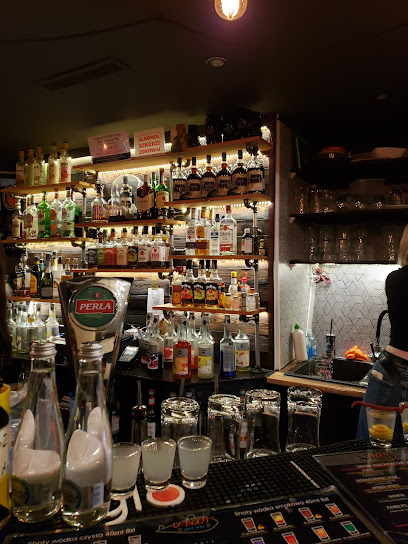
Nocny Portier - Cocktail Bar
Discover the vibrant nightlife at Nocny Portier, Lublin's chic cocktail bar offering expertly crafted drinks in a cozy lounge setting.
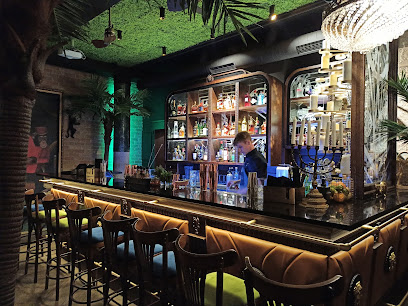
Padbar
Experience the vibrant nightlife of Lublin at Padbar, where creative cocktails and a lively atmosphere await you.
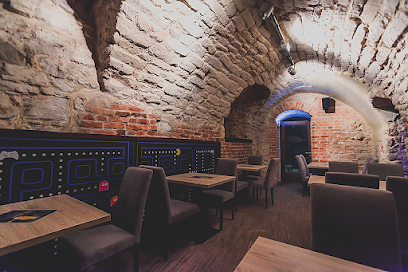
Rider's Pub
Experience the vibrant atmosphere and exquisite craft beers at Rider's Pub, the heart of Lublin's brewpub scene.
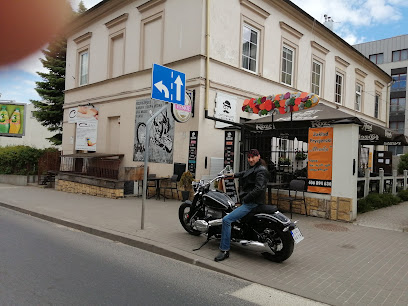
Just Crafted
Experience the perfect blend of craft beer, delicious food, and board games at Just Crafted, a vibrant pub destination in Lublin.
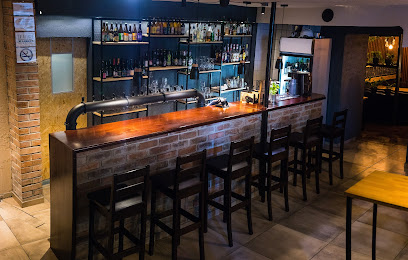
Zakładowy Brewery Taphouse
Discover the essence of craft brewing at Zakładowy Brewery Taphouse, where exceptional flavors meet a cozy atmosphere in Lublin.
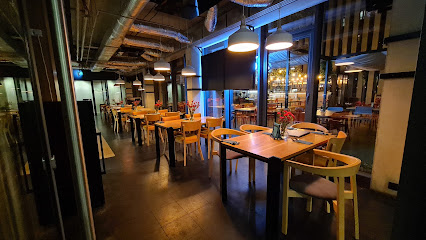
Local Phrases
-
- HelloCześć
[che-shch] - GoodbyeDo widzenia
[do vee-dzen-ya] - YesTak
[tak] - NoNie
[nye] - Please/You're welcomeProszę
[pro-she] - Thank youDziękuję
[jen-koo-yeh] - Excuse me/SorryPrzepraszam
[pzhe-pra-sham] - How are you?Jak się masz?
[yak sheh mah-sh] - Fine. And you?Dobrze. A ty?
[doh-bzhe. ah ti] - Do you speak English?Czy mówisz po angielsku?
[chi mo-vish po an-gyel-skoo] - I don't understandNie rozumiem
[nye ro-zoo-myem]
- HelloCześć
-
- I'd like to see the menu, pleaseChciałbym zobaczyć menu, proszę
[h-chyah-bim zo-ba-chich meh-noo, pro-sheh] - I don't eat meatNie jem mięsa
[nye yem myen-sa] - Cheers!Na zdrowie!
[nah zdrov-yeh] - I would like to pay, pleaseChciałbym zapłacić, proszę
[h-chyah-bim za-pla-chich, pro-sheh]
- I'd like to see the menu, pleaseChciałbym zobaczyć menu, proszę
-
- Help!Pomocy!
[po-mo-tsi] - Go away!Idź sobie!
[eedzh so-byeh] - Call the Police!Zadzwoń po policję!
[zadz-von' po po-leet-syeh] - Call a doctor!Zadzwoń po lekarza!
[zadz-von' po leh-kar-za] - I'm lostZgubiłem się
[zgoo-bi-wem sheh] - I'm illJestem chory
[yes-tem hoh-ri]
- Help!Pomocy!
-
- I'd like to buy...Chciałbym kupić...
[h-chyah-bim koo-pich] - I'm just lookingTylko się rozglądam
[tzi-koh sheh roh-gwah-dam] - How much is it?Ile to kosztuje?
[ee-leh to kosh-too-yeh] - That's too expensiveTo jest za drogie
[to yest za dro-gyeh] - Can you lower the price?Czy możesz obniżyć cenę?
[chi moh-zhesh ob-nee-zhich cheh-neh]
- I'd like to buy...Chciałbym kupić...
-
- What time is it?Która godzina?
[ktoh-ra god-zee-nah] - It's one o'clockJest pierwsza
[yes-t pyer-vshah] - Half past (10)Pół do dziesiątej
[poow doh dzyeh-shon-tey] - MorningRano
[rah-no] - AfternoonPopołudnie
[po-poo-woo-dnyeh] - EveningWieczór
[vyeh-choor] - YesterdayWczoraj
[v-cho-rah-y] - TodayDziś
[jee-sh] - TomorrowJutro
[yoo-tro] - 1Jeden
[yeh-den] - 2Dwa
[dvah] - 3Trzy
[tshih] - 4Cztery
[ch-tser-ih] - 5Pięć
[pye-ntsch] - 6Sześć
[shesh-ch] - 7Siedem
[shyeh-dem] - 8Osiem
[oh-shyem] - 9Dziewięć
[dzyev-nye-ch] - 10Dziesięć
[dzyeh-shon-tsch]
- What time is it?Która godzina?
-
- Where's a/the...?Gdzie jest...?
[gdzhyeh yest] - What's the address?Jaki jest adres?
[yah-ki yest ah-dresh] - Can you show me (on the map)?Czy możesz mi pokazać (na mapie)?
[chi moh-zhesh mee po-ka-zach (na mah-pyeh)] - When's the next (bus)?Kiedy będzie następny (autobus)?
[kye-dih byeh-nye nas-tep-ny (ow-toh-boos)] - A ticket (to ....)Bilet (do ....)
[bee-let (do)]
- Where's a/the...?Gdzie jest...?
History of Lublin
-
Lublin's origins date back to the early Middle Ages, with the first permanent settlement established in the 6th century. By the 10th century, it had become a fortified stronghold, playing a crucial role in the defense against various invasions, including those by the Tatars and Ruthenians.
-
The Union of Lublin was a significant event in European history, signed on July 1, 1569. It marked the official creation of the Polish-Lithuanian Commonwealth, uniting the Kingdom of Poland and the Grand Duchy of Lithuania into a single state. This union significantly influenced the political and cultural landscape of Central and Eastern Europe.
-
Lublin was an important center for Jewish culture and learning. By the 16th century, it had become known as the 'Jewish Oxford' due to the establishment of the renowned yeshiva, the Chachmei Lublin Yeshiva. The Jewish community thrived here until World War II, contributing significantly to the city's cultural and economic development.
-
The Lublin Castle, originally built in the 12th century, has been a significant landmark throughout Lublin's history. It served various roles, including a royal residence, a prison, and a museum. The Chapel of the Holy Trinity within the castle is particularly famous for its unique blend of Gothic and Byzantine frescoes, dating back to the 15th century.
-
During the 16th and 17th centuries, Lublin experienced a cultural and architectural renaissance. The city became known for its distinctive architectural style, which combined elements of Polish, Italian, and Dutch influences. Many buildings from this period, such as the Old Town and the Crown Tribunal, still stand today, showcasing the city's rich historical legacy.
-
World War II brought devastating changes to Lublin. The city was occupied by Nazi Germany, and it became the site of one of the first Nazi concentration camps, Majdanek. The Jewish community was decimated during the Holocaust, with many residents being deported to death camps. The war left an indelible mark on Lublin's history and its people.
-
After World War II, Lublin underwent significant reconstruction and development. The establishment of Maria Curie-Skłodowska University in 1944 marked a new era of educational and cultural growth. In the decades that followed, Lublin transformed into a vibrant academic and cultural hub, reflecting its resilience and ability to rebuild.
Lublin Essentials
-
Lublin is accessible by various modes of transportation. The nearest airport is Lublin Airport (Port Lotniczy Lublin), which offers domestic and limited international flights. Alternatively, you can fly into Warsaw Chopin Airport, located about 170 kilometers away, and then take a train or bus to Lublin. The city is well-connected by rail; direct trains from Warsaw take around 2.5 hours. Buses are also available and are a cost-effective option for reaching Lublin from various cities within Poland.
-
Lublin has an efficient public transportation system, including buses and trolleybuses that cover most areas of the city. Tickets can be purchased at kiosks, ticket machines, or via mobile apps. Taxis are readily available, and ride-sharing services like Uber operate in the city. For those who prefer cycling, there are bike rental services and dedicated bike lanes. The city center is compact and walkable, making it easy to explore on foot.
-
The official currency in Poland is the Polish Zloty (PLN). Credit and debit cards are widely accepted in hotels, restaurants, and shops. However, it is advisable to carry some cash for smaller establishments or street markets. ATMs are plentiful throughout Lublin, and currency exchange offices (kantor) offer competitive rates. Mobile payment services like Google Pay and Apple Pay are also gaining popularity.
-
Lublin is generally a safe city for tourists, but it’s always wise to take standard precautions. Avoid walking alone at night in poorly lit areas and keep an eye on your belongings in crowded places, such as markets and public transport. While Lublin doesn't have specific high-crime neighborhoods targeting tourists, it's advisable to stay vigilant, especially in the Old Town and bus/train stations.
-
In case of an emergency, dial 112 for immediate assistance, which connects you to emergency services including police, fire brigade, and medical assistance. Lublin has several hospitals and clinics providing good medical care. Pharmacies (apteka) are widespread and usually open until late. It's recommended to have travel insurance that covers medical emergencies. English-speaking staff may be available in major hospitals, but knowing some basic Polish phrases can be helpful.
-
Fashion: Do dress modestly, especially when visiting religious sites. Avoid overly casual attire in upscale restaurants. Religion: Do respect local customs and traditions. When visiting churches, cover your shoulders and avoid loud behavior. Public Transport: Do validate your ticket after boarding. Don’t eat or drink on public transport. Greetings: Do greet people with a firm handshake. A slight nod of the head is polite. Eating & Drinking: Do try local dishes and accept hospitality graciously. Don’t leave food on your plate, as it can be considered wasteful.
-
To experience Lublin like a local, visit the open-air markets such as the Kalinowszczyzna Market for fresh produce and local goods. Explore the Lublin Castle and the Old Town for a taste of the city's history. Attend cultural events like the Jagiellonian Fair to immerse yourself in local traditions. For a unique experience, take a walk along the Bystrzyca River or visit the Botanical Garden for a peaceful retreat. Engaging with locals, many of whom speak English, can provide deeper insights into the city’s rich culture and history.
Trending Landmark in Lublin
-
Lithuanian Square
-
Multimedia Fountain
-
Saxon Garden
-
Cracow Gate
-
plac Po Farze
-
Lubelska Trasa Podziemna
-
The Old Town Market Square
-
Wieża Trynitarska - Muzeum Archidiecezji Lubelskiej
-
The Donjon
-
Monument to the Union of Lublin
-
Portal
-
Gothic Tower
-
plac Katedralny
-
Sobieski Palace
-
Remains of the Castle Tower
Nearby Cities to Lublin
-
Things To Do in Radom
-
Things To Do in Rzeszow
-
Things To Do in Kielce
-
Things To Do in Warsaw
-
Things To Do in Tarnow
-
Things To Do in Lviv
-
Things To Do in Lutsk
-
Things To Do in Bialystok
-
Things To Do in Lodz
-
Things To Do in Krakow
-
Things To Do in Czestochowa
-
Things To Do in Prešov
-
Things To Do in Zakopane
-
Things To Do in Ternopil
-
Things To Do in Uzhhorod

















